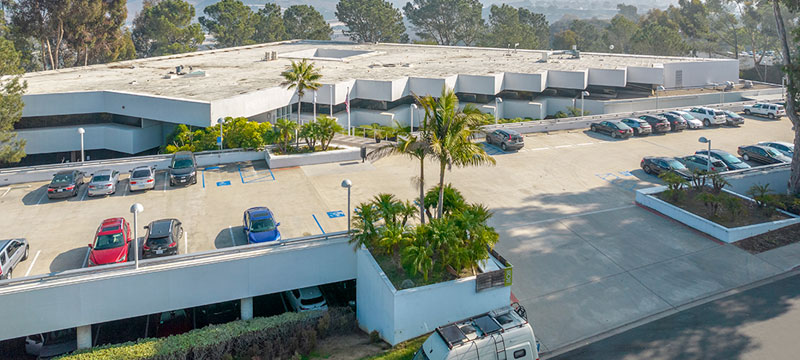SAN DIEGO, Oct. 14, 2014 /PRNewswire/ -- BioAtla, a global biotechnology company focused on the development of Conditionally Active Biologics (CABs), today announced that the United States Patent and Trademark Office (USPTO) has issued to BioAtla U.S. Patent No. 8,859,467, for its proprietary Comprehensive Integrated Antibody Optimization™ (CIAO!™) technology platform. The BioAtla CIAO patent broadly covers methods of evolving and screening for antibodies in manufacturing host cells during the discovery stages of drug development. The CIAO technology platform allows for antibody candidate development in a native cellular environment that generates the best collection of lead candidates that optimize downstream expression yields and in vivo translation of function, thereby increasing the likelihood of preserving selected therapeutic activities in the final drug.
"CIAO and our related proprietary evolution and selection technologies are beneficial, and often critical, in the development of antibodies and other proteins that maximize selectivity, such as those developed from our patented CAB technology," said Jay M. Short, Ph.D., president, chief executive officer and chairman of the board of BioAtla. "CABs can be designed as monoclonal antibodies, antibody drug conjugates (ADCs), CAR-T cells or other therapeutics to target specific tissues in cancerous or distressed conditions associated with unique microenvironments in the body. CAB antibodies are a disruptive technology for the development of a powerful new class of immunotherapeutics and are prime examples of novel potential product opportunities that benefit from the use of CIAO-based processes."
BioAtla employs CIAO technology in all of its internal development programs for its growing list of pipeline antibody candidates. The high fidelity of the CIAO platform when combined with BioAtla's evolution technologies allows selection of therapeutic candidates with unique functional characteristics, natural protein folding and glycosylation, high protein expression and faster downstream process development characteristics, all of which enable cost and time efficiencies, as well as maximizing and preserving functionality. This homogenous process of evolution through manufacturing leads to greater predictability and likelihood of therapeutic success. BioAtla has successfully utilized CIAO in dozens of antibody programs it has conducted for biotechnology companies and research institutions over the past several years including the licensing in early 2014 of an antibody directed at a novel validated target for the treatment of inflammatory bowel diseases (IBD) and colorectal cancer.
About the CIAO! Technology Platform
The development of novel therapeutic antibodies is increasingly employing the power of evolution to discover molecules with selected characteristics. A molecule's characteristics reflect all inherent and environmental influences such as amino acid sequence, secondary modifications (e.g. glycosylation), and tertiary characteristics such as folding which is affected by environmental factors including pH, salt, temperature, hydrophobicity, support proteins (e.g. chaperonins), substrate pools; generically, the host environment. While the power of evolution is the ability to discover molecules with selected characteristics, the inherent challenge is that the selection process is dominated by the selection environment or assay. As an example, selecting a molecule in bacteria and subsequently expressing in mammalian cells risks generating molecules that require extra process development costs to adapt to the different host system and poor pK in vivo due to the potential of selecting unnatural secondary and tertiary structures. The power of BioAtla's CIAO technology is that it selects molecules in a manner that mirrors both the body's environment and the host that will be used for final manufacturing of the drug.
About Conditionally Active Biologics (CABs)
Conditionally Active Biologic proteins (CABs) are generated using BioAtla's proprietary protein evolution technologies, including CIAO, that typically employ selected amino acid substitutions in a protein that work together to confer selective conditional activation found in a range of microenvironments existing in the body. These proteins can be monoclonal antibodies (mAbs), antibody drug conjugates, CAR-T cells, or other therapeutic proteins designed with functions dependent on changes in microphysiological conditions (e.g., pH, oxidation, temperature, pressure, presence of certain ions, hydrophobicity and combinations thereof).
CABs allow for higher dosing or the development of more potent, non-immunogenic drugs. CABs increase safety because the drug is activated and preferentially binds directly to its intended target protein in the microenvironment of the diseased cells and not in normal tissue. This advantage allows CABs to use targets that are present on cancer cells even though the targets may also be prevalent among normal cells. Such targets are considered unusable in current drug therapy approaches because their lack of selectivity risks unwanted on-target toxicity. The higher selectivity resulting from CAB antibody generation is expected to capitalize on the attractiveness of such previously unavailable targets and increase the effectiveness of most therapeutics relative to traditional antibody approaches.
About BioAtla, LLC
BioAtla is a global biotechnology company with operations in San Diego, California, and Beijing, China. BioAtla develops novel monoclonal antibody and other protein therapeutic products with more selective targeting, greater efficacy, and more cost-efficient and predictable manufacturing. By utilizing its proprietary technologies of product design and development, from target discovery to manufacturing and preclinical studies, BioAtla develops differentiated, patentable therapeutic proteins for its partners and for its internal programs. BioAtla has over 70 patents issued and pending that cover its platform technologies representing a full complement of therapeutic protein development capabilities. Learn more at
bioatla.com.
SOURCE: BioAtla
